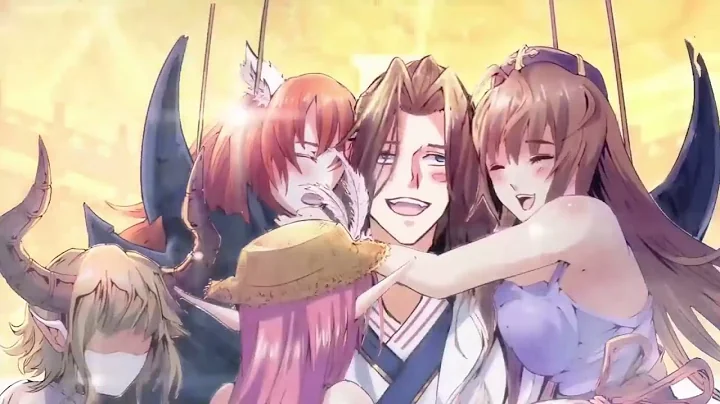Feng Shui? Guo Pu, a writer of the Jin Dynasty, mentioned this sentence in his book "Burial Book": "The buried person takes advantage of the Qi, and the Qi will be dispersed by the wind, and the boundary water will stop. The ancients The gathering makes it not disperse, and the moving makes it stop, so it is called Feng Shui. The method of Feng Shui is to get water first, and to hide wind second. ”
Since then, a harmonious way between man and nature has had the ultimate definition, which is Feng Shui. When it comes to Feng Shui, we have to briefly mention the funeral culture. As the old saying goes, the dead are the most important, that is to say No matter whether a person has done good or bad things during his lifetime, he should be respected by people after his death.

A person’s final destination is to be buried. Burial is the earliest, longest-lasting, and most widely used method. . The tomb is the final resting place of the deceased. Out of respect for the deceased, relatives will use Feng Shui to build the tomb in the most reasonable and appropriate place.
The ancient emperors were particularly concerned about the Feng Shui of the mausoleum. In their eyes, the ancestral mausoleum and his own resting place can be related to the rise and fall of the political power. The common people also have this idea. If the tomb is built in a geomantic treasure land, then it can protect the descendants, wealth, peace and continuity.

Common proverbs are a way of expression of culture. They are generally passed down orally. They are the experience and wisdom accumulated by ancient people in their lives and work. They are worthy of reference and praise by future generations. There is such a rural saying, There is no grave. The headless descendant is poor, the fox guards the grave and the rich are rich for three generations , what does this sentence mean? Is the truth contained in it correct?
The headless descendant of the grave is poor
Many friends must have such an impression. We often walk on the roadside or in the mountains You will see graves, but some graves just look like small mounds, without even tombstones or offerings, and are overgrown with weeds; while some graves are larger and more luxurious, with many flowers and plants planted around them. Except for trees, there are no weeds growing.

Generally, under such circumstances, people will think that the deceased’s grave is small, which means that the descendants of the family are withered, and they do not have the ability and financial resources to build tombs for their relatives, and they do not have the energy. To clean up and sweep the weeds around the tomb. If the deceased has a larger tomb, it means that the descendants are promising and the family is prosperous. The deceased must have been respected during his lifetime, so people often come to sweep the tomb or pay homage.
Fox Guards the Tomb Fusan Generations
What does the last sentence "Fox guarding the grave of three rich generations" mean? As the name suggests, it means that the presence of a fox in a grave is an auspicious sign. In our impression, foxes generally have derogatory connotations such as cunning, cunning and hypocrisy. Synonyms, in fact, these are all influenced by ancient literary works. In fact, the fox was an animal that represented auspiciousness a long time ago.

Furthermore, it is regarded as one of the five folk immortals and is a very spiritual animal. Animal, this is probably how the fox fairy is called. Precisely because the fox has the characteristics of auspiciousness and fairy spirit, when it appears around the grave, it is regarded as guarding the grave for the deceased. A great good omen.
Secondly, from an environmental and scientific perspective, if there are foxes around the tomb, snakes, insects, rats, and ants generally do not dare to approach it, which can play a role in protecting the tomb. There are several positive influences, so people will think that when there is a fox guarding the tomb, it has a very beautiful meaning, that is, the fox guarding the tomb will make three generations rich.

In fact, the relatively small size of some graves is related to the area of the land. It may also be because relatives are far away from home and cannot come often to worship or sweep graves. Therefore, it cannot be concluded that it is because the family is poor. Foxes like to live in hills, mountains, grasslands, and earthen caves with lush trees, and some graves are exactly in line with the living environment of foxes.

Therefore, it is completely normal to see foxes living and appearing around graves. All in all, whether it is the size of the grave or whether there are foxes around it, it is actually people's respect for the deceased and their expectations and wishes for a better life.


![✨Soul Land EP 01 - 130 Full Version [MULTI SUB] - DayDayNews](https://i.ytimg.com/vi/AtXBtbvNq2c/hq720.jpg?sqp=-oaymwEcCNAFEJQDSFXyq4qpAw4IARUAAIhCGAFwAcABBg==&rs=AOn4CLBOIp4OllfYh1yxt0effNrUko92Lg)

![Eng Sub [The Great Ruler] Season 1 Collection - DayDayNews](https://i.ytimg.com/vi/E77PsgZEkBQ/hq720.jpg?sqp=-oaymwEcCNAFEJQDSFXyq4qpAw4IARUAAIhCGAFwAcABBg==&rs=AOn4CLAl8osCLRnB9rnsDaMWN3_ooUcRww)


![[FULL] Super Demon S1-S4 MULTI SUB 《妖道至尊完整版》 - DayDayNews](https://i.ytimg.com/vi/LhH1F0pU1fc/hqdefault.jpg?sqp=-oaymwEcCOADEI4CSFXyq4qpAw4IARUAAIhCGAFwAcABBg==&rs=AOn4CLAGzQmUkd64cY938wdOJx1WjgN7rw)
![✨A Will Eternal EP 01 - 106 Full Version [MULTI SUB] - DayDayNews](https://i.ytimg.com/vi/PkAfGiXQK_U/hq720.jpg?sqp=-oaymwEcCNAFEJQDSFXyq4qpAw4IARUAAIhCGAFwAcABBg==&rs=AOn4CLBTtc2yQP7WY40Q41f_lIF2Yj_WKA)












